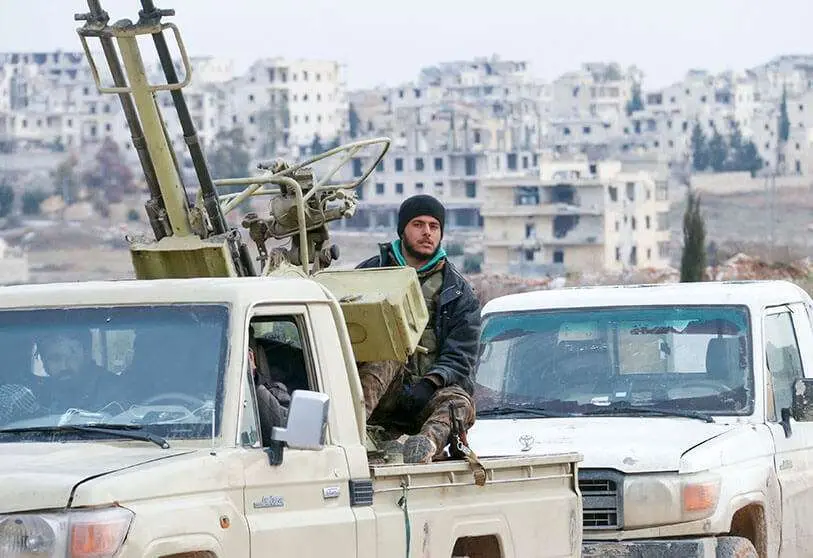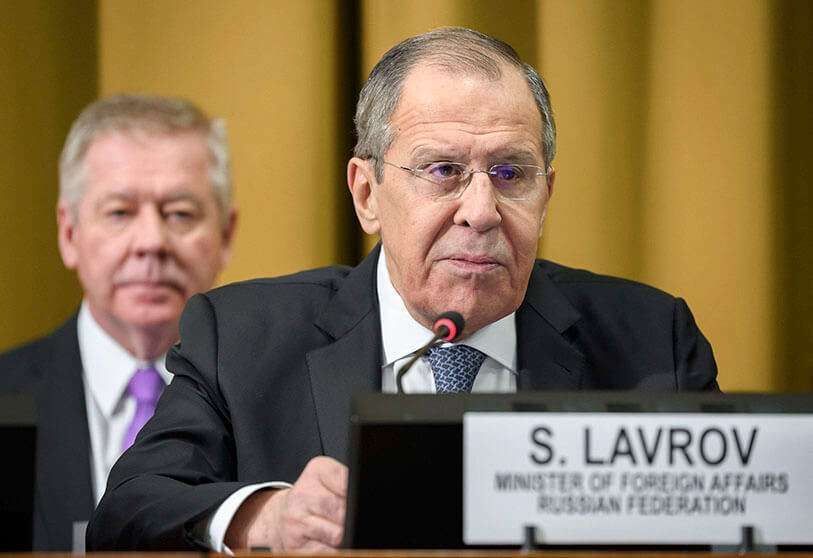Syria accuses Turkey of attacking one of its planes and shooting down a Turkish drone

Syria on Tuesday accused Turkey of attacking one of its war planes in the province of Idlib, the Arab country's last opposition stronghold, and responded by shooting down at least one drone from Ankara, which has troops deployed in this region, located in the northwest. The Syrian state news agency SANA states that “forces of the Turkish terrorist regime targeted one of the war planes during an operation against terrorist organizations in the Idlib area”.
SANA subsequently reported that Syrian army units shot down a Turkish drone in the vicinity of Saraqeb, a town east of Idlib and around which fighting between government troops and Syrian opposition factions supported by Ankara is concentrated.
Meanwhile, a Syrian military source has informed Efe that the L-39 aircraft was hit by missiles launched by Turkish aircraft and fell in the vicinity of the town of Maarat al-Numan. The source, who requested anonymity, added that Syrian forces “responded quickly to the Turkish planes” and shot down two Baykar-type drones in the vicinity of Saraqeb.
In addition, a leader of the insurgent group Honor Army, Mustafa al-Baqur, told Efe that Turkey launched two missiles at two Syrian aircraft and one of them was shot down while the other had to make an emergency landing. Al-Baqur said one of the pilots was captured and taken to a hospital in the area.
In addition, the Turkish Ministry of Defence says a Czechoslovakian-made L-39 fighter was shot down by the Turkish Army during Operation Spring Shield, launched by Ankara on Friday in retaliation for the deaths of more than 30 Turkish soldiers in Idlib.
The operation represents the biggest war escalation between Turkey and Syria, which in the past few days have clashed directly in Idlib. On March 1st, Turkey shot down two Syrian warplanes of type Su-24, which fell in the south of Idlib, although the pilots were able to save themselves after parachuting down before the impact. In response, forces loyal to President Bachar al-Asad shot down three Turkish drones.
Since last month, Ankara has been sending more troops and supplies to the warring factions against Al-Asad and has supported these groups, which are fighting on the ground in Idlib and other areas of north-western Syria. The Syrian army began an offensive last April in this area, the last controlled by the rebel and Islamist factions, including the Levantine Liberation Agency, which includes the former Syrian Al-Qaeda affiliate.

For his part, Russian Foreign Minister Sergei Lavrov said in Helsinki that Moscow will not reduce its military presence in Syria and will continue to fight terrorism alongside the Syrian president, despite the refugee crisis that threatens Europe.
“We understand how serious the problem of refugees and illegal immigration is for the European Union, but we cannot stop the fight against terrorism to solve the refugee problem”, Lavrov said at a press conference during his visit to Finland.
Russia has deployed military forces in Syria to support Al-Asad in its offensive against the last rebel factions, including the Islamist alliance Levantine Liberation Agency, which in turn is supported by Turkey's President Recep Tayyip Erdogan.
Erdogan's decision to open up his country's borders last week led to thousands of people displaced from the Syrian war who were in Turkish refugee camps heading for Greece with the intention of reaching the European Union. According to Lavrov, the solution to the European migration problem lies in the fulfilment of the agreements reached by Russian President Vladimir Putin with Erdogan in the Russian city of Sochi in 2018 to demilitarise the Idlib area.
“Unfortunately, these agreements have not yet been completed, but we hope that the next meeting between Putin and Erdogan will find a way to approach that moment”, said Lavrov.
Putin and Erdogan are scheduled to meet in Moscow on Thursday to seek a solution to the escalating tensions in Idlib, while the EU is considering how to deal with the migration crisis on the Turkish-Greek border. The head of Russian diplomacy has also expressed the hope that the EU will stop focusing its discourse “on the problem of illegal immigration” when addressing the war in Syria and its consequences. “We also hope that (the EU) will not forget the terrorist threat, which is growing in the Middle East and the Idlib region”, Lavrov said.








